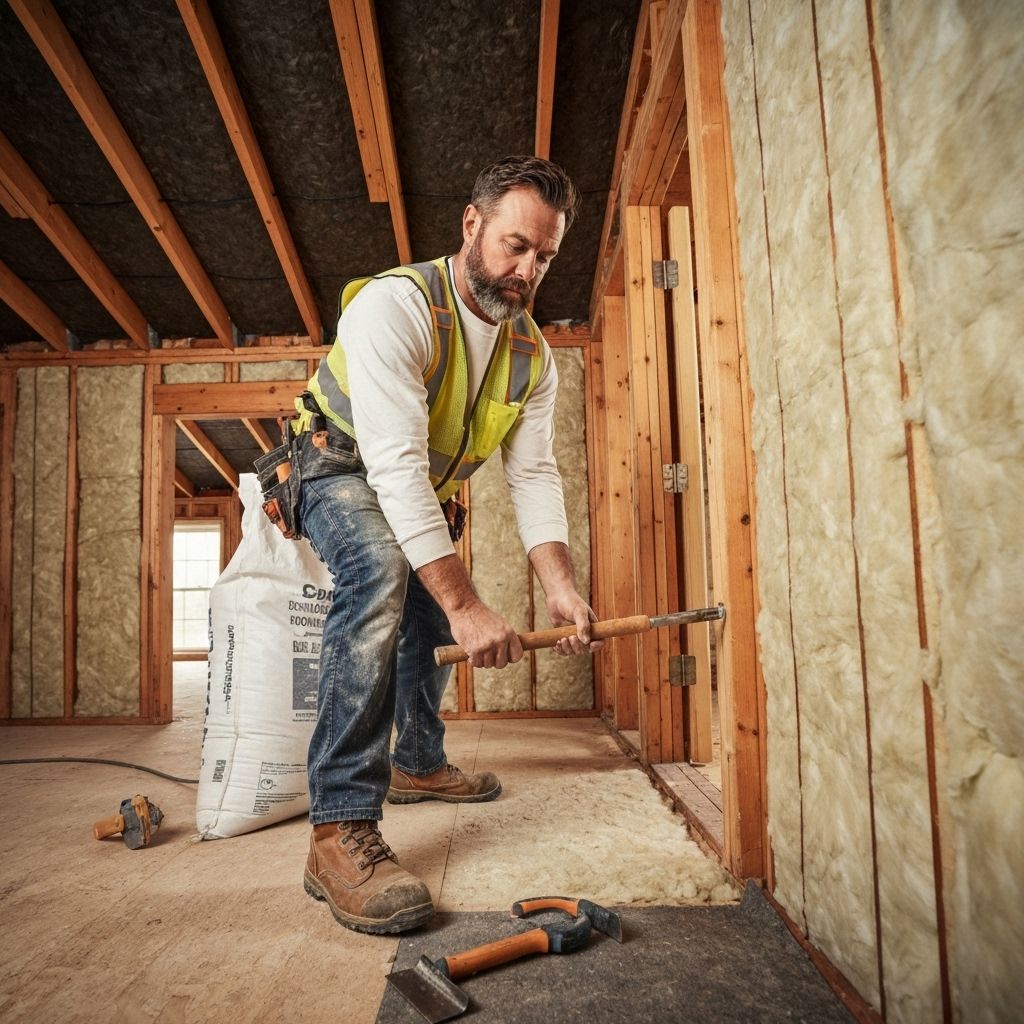Apart from Blankets: Discovering the Science of Optimal Domestic Thermal Protection

Regarding home comfort, efficient insulation is often not prioritized, overshadowed by other home improvement projects. insulation companies said, the process behind home insulation is fundamental to creating a cozy environment, lowering energy costs, and enhancing your home's overall value. As we navigate the world of insulation, we'll explore everything from R-values to the benefits of air sealing, guiding you understand why insulation is a worthwhile investment.
In this guide, you'll learn how to check your home's current insulation, select the right materials for your needs, and implement efficient strategies that go beyond just throwing on more blankets. If you have drafty rooms or aiming to maintain a comfortable temperature year-round, comprehending the nuances of insulation will allow you to make knowledgeable decisions that enhance your home's efficiency and comfort.
Determining the Appropriate Insulation
Determining the right insulation for your home is important for maintaining comfort and energy efficiency. The decision primarily depends on a few factors, including the climate in your area, the exact areas of your home requiring insulation, and your budget. For case in point, in colder climates, materials with higher R-values are preferred to successfully resist heat loss. In contrast, in warmer regions, insulation should repel heat to keep cooler indoor temperatures. Understanding https://insulation-pal523.blogbright.net/this-complete-handbook-to-residential-heat-retention-keep-your-space-warm will help you choose the numerous options available.
Different insulation materials offer specific advantages and disadvantages. Batt insulation, often made of fiberglass, is popular for its convenience of installation and cost-effectiveness, while blown-in insulation provides superb coverage in hard-to-reach areas. Spray foam insulation creates an sealed seal, causing to superior energy efficiency but tends to be more expensive. Assess your home's layout and insulation goals to decide which type suits your needs most effectively. Ponder consulting with professionals if needed to make a well-informed decision.
Ultimately, the right insulation decision can significantly impact both your home's energy efficiency and overall comfort. By investing resources in researching and picking the best insulation for your specific circumstances, you can enhance your living environment and potentially save on energy costs in the long run. Don't hurry this decision; comprehension of your options is essential to achieving the optimal results for your home.
Sound Installation Guidelines
When installing insulation, it is crucial to prepare the area properly. Eliminate any debris and ensure that the area is clean and dry and clean. Ensure you put on proper safety gear, such as gloves, goggles, and a mask, to protect yourself from irritants. Installing insulation in an organized environment not only aids in a smoother installation but also helps prevent potential dangers.
Correct measuring and cutting of insulation materials are essential for securing an effective seal. Be precise with your measurements to reduce gaps and ensure that the insulation fits tightly in the locations it is designed to fit. If you're using batt insulation, do not squashing it, as this can reduce its effectiveness. If you are employing blown-in insulation, take care to distribute it evenly to get the targeted thickness and amount.
Finally, always pay attention to sealing air leaks before and during the insulation installation. Locate and seal any air leaks with caulk or spray foam around doors, and other openings. This step is vital as it enhances the insulation's effectiveness by preventing drafts from compromising your home's thermal barrier. A properly sealed and well-insulated home will provide greater energy efficiency and coziness throughout the year.

Benefits of Quality Insulation
Proper insulation offers considerable gains that go beyond mere comfort in your home. One of the main benefits is energy efficiency. Well-insulated homes experience reduced heat transfer, which means your heating and cooling systems don’t have to work as hard to maintain a comfortable temperature. This leads to decreased energy bills, allowing homeowners to save money in the long run. Moreover, enhanced energy efficiency contributes to a reduced carbon footprint, aligning with eco-friendly living practices.
An additional important benefit of effective insulation is its role in enhancing indoor air quality. Insulation can help regulate indoor temperatures and minimize humidity levels, minimizing the growth of mold and mildew. A well-insulated home can also restrict the infiltration of outdoor pollutants and allergens, creating a safer living environment for you and your family. This creates a space where you can feel more at ease and feel more comfortable, enhancing your overall well-being.
Finally, proper insulation can boost the value of your home. Buyers are increasingly looking for sustainable features that promise decreased utility costs and a reduced environmental impact. Insulation is a subtle upgrade that can differentiate your home apart in the real estate market. By investing in insulation now, you not only enjoy immediate benefits but also position your property for better resale value in the future.
